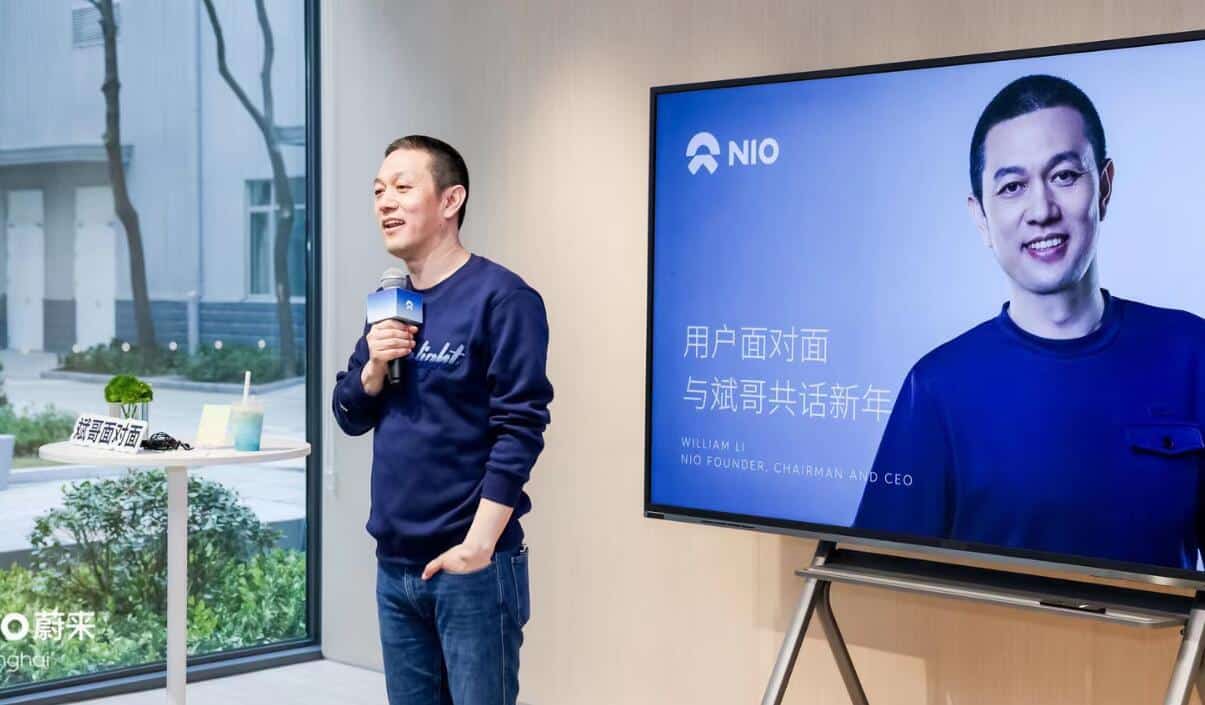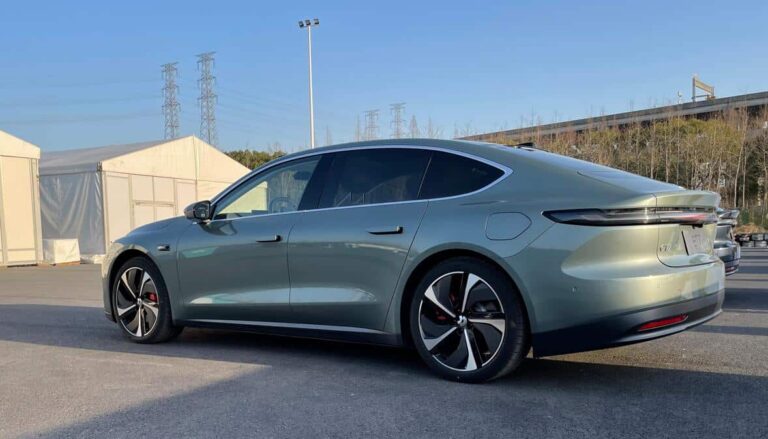Nio's workload will increase a lot in 2023, but there will only be a small increase in resource investment, and inefficient projects will be optimized.
(Image credit: Nio App)
Nio (NYSE: NIO) has suffered multiple operational problems in the past year, disappointing many supporters and investors. The man at the helm of the company clearly took notice and set out to improve.
William Li, Nio's founder, chairman and CEO, outlined the major issues the company is currently facing in an internal all-hands letter dated January 1, asking for greater efficiency among employees and vowing to optimize inefficient projects and teams.
In 2022, the impact of the Covid outbreak and emergencies were beyond expectations, disrupting Nio's original pace and plans, Li said, according to the letter obtained by CnEVPost.
"In 2022, there are pains and gains. However, it should be clearly recognized that many peers outperformed us in the same period," Li said.
Li cited eight areas where Nio has fallen short, including:
Nio's delivery growth lagged behind the overall growth rate of China's smart electric vehicle market.
Many other manufacturers have responded more quickly and efficiently in response to supply chain fluctuations.
In response to demand fluctuations, Nio's adjustments were not timely, resulting in unnecessary losses.
Nio's software and hardware quality issues before and after the launch of new models have affected product reputation.
Nio's test vehicle accidents and data theft incidents indicate that the company's internal management needs to be strengthened.
Nio has established a feedback mechanism for user satisfaction, but the speed of problem resolution is still far from users' expectation.
Nio's team has expanded too quickly in the past year, and internal communication efficiency needs to be improved urgently.
Nio's digital management system does not support the new demands of the business well and has become a bottleneck for business development.
In his letter, Li warned that it would be a long process for the Chinese economy and consumer confidence to recover after the Covid epidemic, and that high-end models would be particularly affected.
At the same time, the market is becoming more competitive and differentiated competitive advantages are becoming harder to obtain, he said.
Nio's team continued to expand in 2022, but unclear responsibilities, inconsistent goals and poor processes are common, and there is still very much room for efficiency improvements, Li said.
Nio's workload will increase a lot in 2023, but the company will only see a small increase in resource investment, he said.
"We have to tap into the potential internally. In particular, low-efficiency organization, teams, processes and projects need to be streamlined and optimized comprehensively," he said.
The rapidly changing marketplace requires Nio employees to become more agile in their understanding, process handling and capabilities, he said.
In the internal letter, Li laid out the requirements for Nio's teams for the new year:
Nio's product experience team must be more sensitive to user needs and respond quickly to user feedback.
The R&D team should evaluate the progress of R&D projects, find problems and fix them in time.
The user development and operation team should dynamically forecast market demand to provide the industrialization team with timely and accurate planning basis.
Supply chain, manufacturing, and logistics teams should respond faster according to market fluctuations and ensure supply at the lowest possible cost.
The quality team should reduce quality cost loss and protect the interests of users and product reputation.
After-sales and service teams have to respond faster to user needs and improve user experience.
The management and support team should provide more convenient support for business colleagues and improve the efficiency of the business team.
Li said in the letter that Nio will deliver five new models based on the NT 2.0 platform in the first half of 2023, and that development of the NT 3.0 platform will be in full swing this year.
Nio's various innovative businesses will see a key period of growth, and the company's delivery and service in Europe will be further accelerated, he said.
"Great companies can turn challenges into opportunities and build their own competitive strengths under pressure," Li said, adding, "The competition of smart EV is now in the later stage of the qualifying round. We have to perform exceptionally well to be able to enter the final round. "
Nio has suffered several operational issues over the past few months, leaving many investors disappointed. Last week, the company added to the frustration by unexpectedly lowering its delivery guidance for the fourth quarter.
Following this series of developments, Deutsche Bank analyst Edison Yu's team asked in a research note sent to investors on January 3 if Nio's operational issues would ever end.
"The short is answer is yes but we share investor frustration following the guidance cut last week especially in the context of LI and XPEV meeting/beating estimates and Zeekr managing to exceed its overall 2022 target which was set at the beginning of last year," the team said.
With Nio valued well below Li Auto at the end of 2022, this reflects investor concerns about Nio management's ability to execute, especially when it has ambitions to launch two other car brands and expand meaningfully into Europe, the note wrote.
"Said more bluntly, how can we trust management to launch multiple brands in different segments (and foreign countries) when it has consistently missed production targets?" Yu's team asked.
For the full text of Li's internal letter in English, click here.

